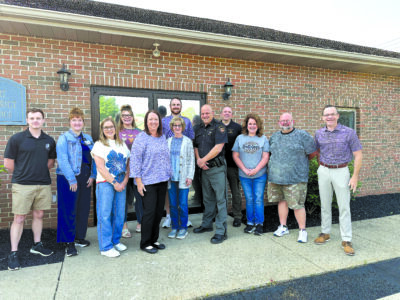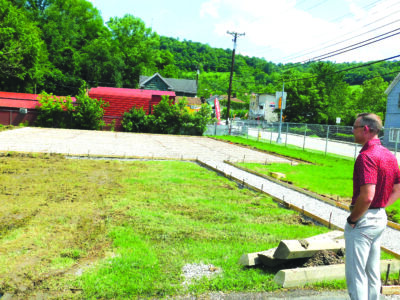Virtual town halls promote vaccines
By ROBERT A. DEFRANK
Times Leader Staff Writer
COLUMBUS, Ohio — The state held the first of four planned virtual town hall meetings Monday to answer questions about vaccines for the COVID-19 pandemic and to encourage people to get the shots.
The first town hall at coronavirus.ohio.gov, directed to ward African American Ohioans, included Black medical professionals, advocates and representatives of the faith communities who spoke with the goal of assuring viewers of the vaccine’s safety.
Panelists began by acknowledging the mistrust many in the African American community have for government programs related to health care, mentioning the Tuskegee Experiments of the 1930s through the 1970s that involved secretly withholding treatment for syphilis. Speakers added that African American professionals were involved in the development of the vaccine and that 10 percent of the study group of 4,400 and 3,000 people for the Pfizer BioNTech and Moderna vaccines, respectively, were composed of African Americans.
The historic disparity of health care available was also discussed.
Sofia Tolliver, a family medicine physician serving vulnerable patient populations in Columbus, described the vaccine’s contents and addressed concerns about its speedy development. She said the science behind the vaccine is close to a decade old and that coronaviruses have been studied for about 50 years.
“There was already a groundwork in place. There was already science and data in place,” she said. “We weren’t starting from scratch.”
Leon McDougle, president of the National Medical Association and chief diversity officer at the Ohio State University Wexner Medical Center, described a “robust oversight” and said there was no difference in results between African American test subjects and others.
“The process involved did not take a shortcut on quality,” McDougle said, adding the National Medical Association’s COVID-19 task force reviewed the process. “We met personally with the scientists from Pfizer and Moderna, the developers of the currently available messenger RNA vaccines.”
They continue to meet with developers working on potential new versions of the vaccines.
“We investigated the vaccines from the perspective of black doctors serving the black community, and we did not see significant difference in outcomes.”
For the best sources of information on the vaccine, Ohio NAACP President Tom Roberts and Southwest Ohio Urban League President Eddie Koen recommended the Ohio Department of Health website at odh.ohio.gov as well as the individual’s local health department site and the World Health organization. Ohio also maintains the site coronavirus.ohio.gov
They also recommended individuals speaking to people known to them who have been vaccinations.
Beginning the second week of March, the NAACP will work with the Ohio Department of Health will train local leaders to educate the communities
Speakers such as Tollier, McDougle and Cincinnati Health Commissioner Melba Moore said African Americans are understandably suspicious of new medical therapies, but sources of information were available online and close-by.
Jerry Revish, retired journalist and pastor of Unity Temple Church of God and Christ in Columbus, recognized the fears of many in the African American community and asked if they do not wish to trust the government and medical community, they could still trust the science.
“There is a lot of great information out now about the vaccine,” he said, adding that there was no conflict between faith and medical progress. “I want you all to get vaccinated. … There were some people who were really reluctant about taking the vaccine, and of course we know the history of black people and medicine. … What do the facts say? What does the science say? This has been a tried and tested vaccine.”
He and other speakers also stressed community responsibility and the effort to prevent others in the community from falling ill.
While there is concern for possible side-effects from the virus, many people also have died after an infection of COVID-19 or have never fully recovered. The Center For Disease Control is also monitoring side-effects, which are expected to fade shortly.
The town hall will be available for viewing at 6 p.m. Saturday and 2 p.m. Sunday on the Ohio Channel, and will be placed on coronavirus.ohio.gov
Another town hall will be held at 6:30 p.m. today, directed at Hispanic/Latino Ohioans. A March 1 town hall will be directed at Asian American and Pacific Islander Ohioans. On March 2, there will be a town hall directed at rural Ohioans.




